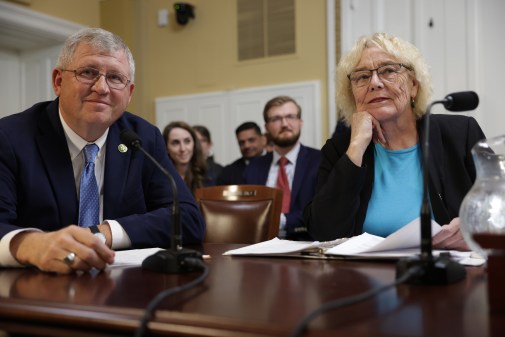Federal initiative aims to spark kids’ interest in cybersecurity

Students in universities can typically choose a track to learn about cybersecurity, but federal officials want the topic to be taught in K-12 schools as well. (Flickr/woodleywonderworks)
This is part two in a three-part series about cybersecurity in K-12 education. The third installement will focus on cybersecurity curricula in and after school. To read the first part, click here.
How early should children start learning about cybersecurity?
That’s a question federal officials have been mulling for several years, trying to answer it with a project started in 2010 called the National Initiative for Cybersecurity Education (NICE). It’s currently funded with $4 million a year.
The initiative, which requires roughly 20 federal agencies with diverse agendas to work together to raise awareness about cybersecurity education, was re-upped as part of the Obama administration’s effort to prioritize cybersecurity training in the wake of government and corporate data breaches.
Since then, NICE’s target audience has expanded to include “K through Gray,” said Davina Pruitt-Mentle, executive director of educational technology, policy, research and outreach for the National Cyber Watch Center.
That means everyone from elementary school students to post-collegiate workers looking to change jobs should be exposed to cybersecurity careers to fill a rapidly growing workforce gap, she said.
According to the Peninsula Press at Stanford University, more than 200,000 cybersecurity jobs in the U.S. are vacant, and the demand for jobs in information security are expected to grow by about 50 percent through 2018.
But there are not enough people knowledgeable about the field and its many career offerings from an early age, said Pruitt-Mentle. She is heavily involved in the educational outreach for NICE and charged with expanding opportunities for kids, especially girls.
“Sometimes people think of cybersecurity, and think of hackers and engineers, but there’s a broad range of other jobs,” she said in an interview with FedScoop.
She listed cyber law, espionage, privacy, linguistics and digital forensics as potential jobs many kids overlook when they’re starting to think about their futures. “One of the things we have to do is let students know at an early age what these careers are about and how exciting they can be,” she said.

Davina Pruitt-Mentle, executive director of ETPRO for the National Cyber Watch Center, is heavily involved with getting students in “K-Gray” into cybersecurity fields.
Since NICE was launched, it has undergone some shakeup, including a leadership change. Rodney Petersen, who founded the cybersecurity initiative at a nonprofit called EDUCAUSE, was brought on last year. His job is to coordinate the agencies — the Department of Homeland Security is the main agency overseeing the program, while the Department of Education and the White House Office of Science and Technology Policy are focused on the educational aspect.
The budget for the program will likely stay the same for fiscal year 2016, officials said.
Officials from the Education Department told FedScoop they had a hand in the NICE framework, which aims to “stimulate early interest in cybersecurity by encouraging [pre-K through 12th grade] educators to emphasize connections between cybersecurity and the STEM skills our workforce needs.”
Data breaches are going to become more frequent, Education officials said, which provides added incentive for schools to integrate cybersecurity training in K-12 schools and higher education institutions.
Since last year, cyber STEM camps borne out of NICE have expanded to states like California, Colorado and Oklahoma, reaching beyond the Mid-Atlantic states, said Pruitt-Mentle. The topic is picking up steam nationally and will culminate in a K-12 Cybersecurity Education Conference in Maryland in October.
Experts said kids should learn about cybersecurity not only for their own personal safety — which encompasses lessons on identity theft, malware, passwords and self-representation on social media — but also because they can use their skills to look for potential jobs in the field later on.
“Twenty-first century skills will require people in most work settings at this point to be in contact with technology,” said Michael Kaiser, executive director of the National Cybersecurity Alliance. “And just to be able to work in those places, they need to know how to use technology safely.”
Pruitt-Mentle said simply learning about computer science and coding is not enough anymore.
She said cybersecurity practices and curricula are slowly filtering into high schools, “and this past year we’ve seen more movement in middle school.”
“But I’m very much pushing that this needs to down even deeper into elementary school,” she added.
Reach the reporter at corinne.lestch@fedscoop.com or follow her on Twitter @clestch.
Correction: July 29, 2015. An original version of this story incorrectly stated the federal budget for NICE. It is $4 million per year, not $18 million.






